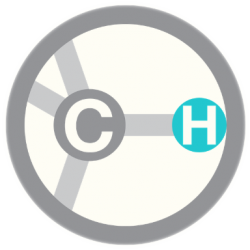Authors: J. B. Daunais, S. L. Hart1, H. R. Smith, S. R. Letchworth, H. M. L. Davies, T. Sexton, B.A. Bennett1, S. R. Childers and L. J. Porrino
J. Pharmacol. Exp. Therap.,
1998, 285, 3, 1246-1254
2β-Propanoyl-3β-(2-naphthyl)-tropane (WF-23) is a potent cocaine analog with activity at dopamine and serotonin transporters. The purpose of these experiments was to characterize the time course of effects of acute administration of WF-23 on spontaneous locomotion and biogenic amine transporters. Rats received injections i.p. with WF-23 (1 mg/kg), cocaine (30 mg/kg) or vehicle and locomotor activity was measured at various times postinjection. Animals were killed immediately after behavioral activity. Locomotor activity was significantly increased by WF-23 administration, reaching maximum at 4 hr and persisting for 24 hr. Cocaine-elicited elevations in locomotor activity occurred only at the earliest times. WF-23 decreased DA transporter binding in striatal membranes ([125I]RTI-55 binding), with >50% loss in binding for up to 49 hr postinjection. WF-23 increased the Kd of the high affinity site, with no effect on Bmax. Cocaine depressed binding (20%) only at the earliest times. WF-23 decreased levels of [3H]WIN 35,428 binding sites up to 95% of control in both dorsal and ventral striatum with a similar time-course when assessed autoradiographically. WF-23 also reduced [3H]citalopram binding to serotonin transporter sites throughout the brain. The slow onset and very long duration of action of WF-23, taken together with its actions at dopamine and serotonin transporters, suggest a potential role for treatment of disorders characterized by their involvement of these neural systems.

